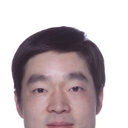Gastroparesis Following Resection of a Fourth-Ventricle Ependymoma in a Child.
Palabras clave
Abstracto
BACKGROUND
Gastroparesis following resection of a fourth ventricle tumor has never been reported in the literature. We report a unique case of gastroparesis following resection of a fourth-ventricle ependymoma in a child.
METHODS
A 14-year-old boy had a 12-day history of headache, nausea, and vomiting. Magnetic resonance imaging revealed a tumor in the fourth ventricle. He underwent a posterior median craniotomy, and total removal was achieved. Histologic analysis revealed an anaplastic ependymoma (World Health Organization grade III). Three days after surgery, the patient complained of upper abdominal pain, nausea, and vomiting. Computed tomography of the abdomen showed dilatation of the stomach. Gastroscopy revealed moderate gastritis without gastric outlet obstruction. Nine days after surgery, a jejunal feeding tube (J-tube) was placed for nutritional support. Once the patient improved his oral intake and demonstrated that he could keep up with his nutritional requirements, the J-tube was discontinued 19 days after surgery. The patient had no neurologic or gastrointestinal complaints at the 2-month follow up.
CONCLUSIONS
We report, to our knowledge, the first case of gastroparesis following resection of a fourth-ventricle ependymoma in a child. Gastroparesis can recover spontaneously, which we suspect may be due to reversible injury of the dorsal motor nucleus of the vagus.



